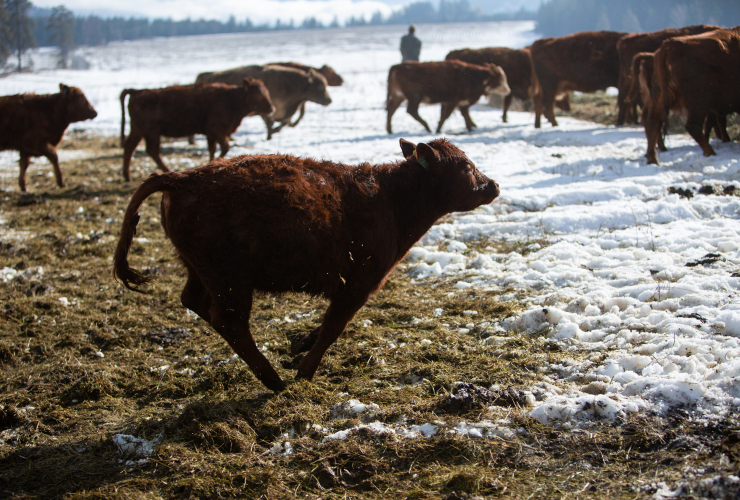Canada’s strong economy, access to education and health care, political stability and individual freedom make it one of the world's most desirable destinations for new immigrants. But advocates say there’s something missing that is vital to their successful integration: information about climate change.
“I never heard (about it) before,” said Samira Sameem, a refugee from Afghanistan. “I want to learn about climate change, but the problem is that in my almost one and half years in Canada, nobody told me or educated me about climate change.”

With government plans to bring in 1.5 million more immigrants in the next three years, the lack of climate change education could negatively impact the effort to achieve ambitious policy goals, like the proposed net-zero emissions by 2050.
“The government of Canada is spending a lot of money to integrate these newcomers into the society and give them knowledge about living, culture, how to find work, education, and the political system. But the knowledge about climate change is not among these efforts,” said Amanullah Atal, a board member of the non-profit Afghan Network for Social Services (ANSS) based in Toronto. “Honestly, the newcomers we worked with had no knowledge and never discussed this topic.”
The federal government acknowledges the importance of climate change to the country’s future and notes the impacts are already being felt. “Higher temperatures, shifting rainfall patterns, extreme weather events and rising sea levels are just some of the changes already affecting many aspects of our lives,” a statement on Natural Resources Canada’s website reads.
“Changes in climate will persist and, in many cases, will intensify over the coming decades. That will have significant impacts on Canadian communities through our economy, social well-being … and environment.”
With government support, Atal said his organization would willingly teach immigrants about climate change and how to be good stewards of their new environment. It could also reach out to those already here.
“It is not actually just newcomers, even immigrants who lived here for years and become citizens, they still don’t know the importance of climate change,” said Atal.
Abdul Basit Karokhel, another refugee and journalist from Afghanistan, made it his mission to learn about climate change before he was forced to leave the country.
“When I was in Afghanistan, I learned about climate change from reading some articles, and I started advocating through my social media about ‘Green Afghanistan,’” said Karokhel.
However, even though climate change was affecting people in Afghanistan, most were not overly interested because they were struggling with more immediate threats like war and famine.
Karokhel hopes to continue his work reporting on climate change for the Afghan community here in Canada.
“I see our Afghan community needs knowledge about it, and it is very important that everyone learn about climate change.”
The government has adopted the Canadian Net-Zero Emissions Accountability Act as a framework to combat climate change.
But some like Atal of ANSS believe for that framework to work, it must take into account the thousands of immigrants being added to the population every year.
“I never hear the discussion about climate change in our communities and this is very unfortunate because climate change affects our lives,” said Atal. “Every one of us must play a positive role to keep our country green and clean.”
Nancy Caron, spokesperson for Immigration, Refugees and Citizenship Canada (IRCC), told Canada’s National Observer that it currently funds an extensive network of immigrant service-providing organizations that are able to provide counselling and settlement assistance to newcomers.
“The focus of these services is to help newcomers begin their new life in Canada finding jobs, get a language assessment, register for language classes, find a place to live, sign up your kids for school and learn about community services,” said Caron.
She says the federal government recognizes that climate change has broad implications related to health, agriculture, economy, trade, infrastructure, the displacement of people and migration.
“The fight against climate change is the challenge of our generation, and Canada is committed to doing its part in meeting that challenge,” said Caron.
This story was produced in partnership with Journalists for Human Rights for the Afghan Journalists-in-Residence program funded by the Meta Journalism Project.
The federal government's main
The federal government's main climate change education initiative is building pipelines and approving new oil and gas projects, sending the message to everyone that we're not in a climate crisis.
We cannot trust the government to help Canadians understand the urgency of the climate situation. The author is correct in identifying a huge gap in helping newcomers to learn about climate change; we need the climate movement to do that so we have more committed people helping to push our governments to act.






Comments